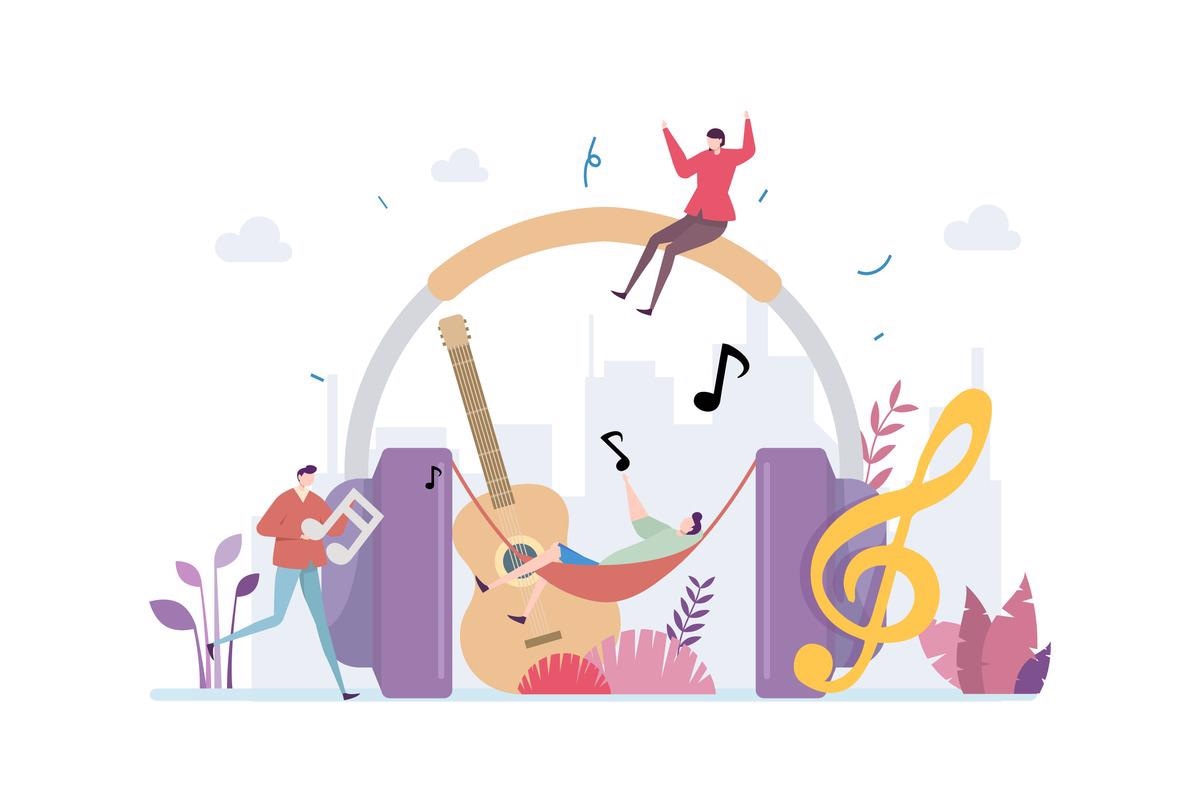I'm Zoë Thomson, co-founder and Chief Innovation Officer at LUCID. I was motivated to begin this work because, through my background as a biomedical engineer and researcher, I observed an abundance of technical capabilities in this current age around biosignals and artificial intelligence (AI). I was interested in how these tools could be leveraged to deliver more personalized and effective care. I didn't see these capabilities fully instantiated within the mental health care paradigm, which is relatively “one-size-fits-all,” while the stigma around traditional interventions like medication and therapy continues to limit access to care. As a result, I saw a real need for novel approaches to mental health interventions. This mission of personalized and accessible tools for mental health is our guiding principle at LUCID.
My role lies at the intersection of clinical research, business strategy, and product strategy. I lead our evidence-based approach to novel product developments and oversee our external partnerships in the digital therapeutics, pharmaceutical, and digital health industries.
LUCID describes itself as a digital therapeutics company that creates music-based tools for outcomes in mental and neuropsychiatric health. Please can you introduce the company, why it was founded, your aims and values, and the services you provide?
At LUCID, we're focused on optimizing the use of music for clinical outcomes within mental and neuropsychiatric health. Music has demonstrated efficacy in the scientific literature for various outcomes, such as improving recovery from stress, reducing anxiety symptoms, and improving mood. Moreover, music is an inherently approachable and engaging modality that is low-barrier to use, which can be especially important for people struggling with their mental health.
Our system uses cutting-edge AI techniques to predict the optimal music intervention for each individual and deliver this personalized approach at scale. First, the system breaks a piece of music down into quantitative musical features and then uses deep reinforcement learning to predict the effects this piece of music will have on a listener. In practice, based on an individual’s current emotional state and the target outcome, the system delivers the optimal music intervention for their unique needs and responses to music. The results from each session are then leveraged to improve system performance over time, both at a population-wide and individual-specific level. Through this system, we can optimize the use of music for outcomes like anxiety reduction or mood improvement and better understand how and why music affects people’s mental and emotional states.
We often partner with other digital health companies to provide this digital music therapy service as a feature for their members to engage with, alongside other mental health services like iCBT or teletherapy. This allows our partners to better support symptom management of their patients between sessions while improving outcomes, engagement, and retention.

Image Credit: doodlia/Shutterstock.com
LUCID is a strongly mission-driven company. We came together as a founding team because we all felt driven to develop novel, effective, and approachable interventions for mental health based on lived experiences or experiences of loved ones. Our core values as an organization are centred on developing solutions that deliver outcomes and touch on a deeper aspect of human experience. Music does that. For centuries, music has facilitated emotional, healing, and communal experiences. We're uniting humans' historical connection with music with modern advancements in AI and science.
Music therapy has been hitting the headlines in recent years for its reported uses in conditions like Alzheimer's Disease. What does the science tell us about the role of music therapy in treating mental health and neuropsychiatric conditions, and what is still currently unknown about this therapy?
Research has shown that music-based therapies are very effective at reducing various symptoms, including stress and anxiety, mood and depressive symptoms, sleep disorders, and pain. Music interventions have demonstrated powerful effects in these domains and, in some cases, hold their own against standard-of-care, like certain pharmaceutical drugs. For example, in pre- and post-operative settings, music-listening can be as effective as benzodiazepines, an anti-anxiety medication, and can also reduce perceived pain and the amount of opioids administered. There are also studies around the use of longer-term, multi-week music therapy interventions for indications like Alzheimer's, which demonstrate reductions in agitation, responsive behaviours, the use of psychotropic medications like antipsychotics, depressive symptoms, and the risk of falls.
However, there's a lack of research on how to most effectively personalize music interventions. Although research has demonstrated the value of personalization in music interventions, there’s little research that can help us understand or predict how an individual is likely to respond to a particular song. That's our focus at LUCID - looking deeper into the music informatics and leveraging cutting-edge machine learning techniques to better understand the specific features of music that predict outcomes at both a population-wide level and at an individual level. There also aren't many studies on how music-based therapies can be supportive when delivered in combination with other treatments, which we’re actively researching in some of our digital health partnerships.
How do you ensure that LUCID's products are not only supported by previous scientific findings but also by validation trials as per the scientific norm?
For digital health and digital therapeutics companies, it's essential to build relationships with the scientific community. Our Chief Science Officer, Dr. Frank Russo, has been doing research in music cognition for years and has authored publications that inform the basis of our intervention. We actively incorporate insights from leading researchers in the field, including Dr. Russo, at every stage of product development.
We have always prioritized developing an evidence-based strategy to match pace with the evidence requirements for other types of therapies like pharmacotherapies. Last year we ran a randomized controlled trial, which was peer-reviewed and published in PLOS One. Within this trial, we recruited over 300 adults with an anxiety disorder, and we randomized them to receive one single 24-minute session of our intervention, or pink noise, which served as the control condition.
We saw statistically greater reductions in acute anxiety in participants who received LUCID's intervention relative to the control group. This was an exciting finding as it demonstrated the efficacy of our intervention at reducing anxiety symptom severity. We’re currently building on this in further trials, including physiological measures and assessments of longitudinal use of the intervention.
Machine learning, a type of AI, has developed rapidly in recent years. How do you utilize this type of AI in your technologies, and what advantages does it provide?
We use AI in two core ways. The first is to predict the responses evoked by a given piece of music in a data-driven, quantitative way. These models operate at a population level, helping us to understand patterns in human responses to music, and at an individual level, enabling us to tailor our predictions to each individual’s unique response to music. The second is an intelligent music recommendation system that performs functional playlisting for targeted outcomes, such as anxiety reduction, to deliver a personalized music intervention at scale.

Image Credit: Den Rise/Shutterstock.com
The advantages of this approach are that it's a very scalable method of providing personalized care. When a professional music therapist works with a patient, they deliver a personalized music intervention by actively observing the patient's responses and adjusting the musical stimulus accordingly. This is a one-to-one or one-to-few model, where one music therapist would work either with an individual patient or a small group of patients, so unfortunately this type of care just can’t reach all those who would benefit. Similarly to the music therapist, our system listens and observes the patient's responses using real-time data and responds using AI - and can be deployed to an unlimited number of patients, globally, at any time.
Digital health technologies have become more popular since the onset of the COVID-19 pandemic, with one of their advantages being that they help health systems become more efficient and sustainable. How may LUCID's technologies/products help to achieve a more efficient and sustainable healthcare system?
LUCID's intervention is largely self-guided. There may be a physician-specified protocol regarding how often or for how long a patient should be engaging with the intervention, but ultimately the patient or the user can engage with the intervention without physician oversight. Self-guided digital interventions, like LUCID's, can support efficiency within the healthcare system in a few ways.
The first is that these support a stepped-care approach to mental healthcare that engages a continuum of solutions from self-guided solutions to provider-led psychotherapy or medication. Providing health systems with the ability to ratchet up or down the intensity of care that an individual receives in line with their need is a more efficient way to leverage healthcare resources and providers’ time.
Self-guided solutions like this are also an opportunity to support symptom management between sessions with a care provider. Moreover, since our solution is designed around real-time data collection of either self-reported symptoms or biometric signals, it provides an opportunity to collect data that can help providers in their decision-making.
LUCID - Transforming Music into Medicine
I think it's important to touch on the fact that efficiency is only one aspect of healthcare delivery. Within mental health, accessibility and approachability of care are key considerations. Although the conversation around mental health is changing, stigma remains a significant barrier to many individuals seeking and receiving care. Providing patients the option to engage with modalities like music can serve as a front door to other forms of mental healthcare.
How do you foresee music therapy, integrated with machine learning, impacting the field of medicine in years to come?
If we look at patterns of human behaviour in our contemporary world, most people already use music functionally in a self-directed way. Streaming services like Spotify or Apple Music offer a plethora of functional music offerings, including music for sleep, athletic performance, focus, stress reduction, and relaxation. Using cutting-edge AI techniques and standardized scientific methodologies to optimize the use of music for outcomes feels like a natural extension of this way of engaging with this familiar medium. I think the future of healthcare involves more solutions of this nature that leverage intrinsic human behaviour to better support individuals in their health goals.
What is next for yourself and LUCID?
LUCID is a research-driven company, and we have a few exciting studies in the pipeline to continue building our evidence base in anxiety and other mental and neuropsychiatric health indications.
We’re also currently collaborating with a Japanese pharmaceutical company, JT, to build a music-based digital therapeutic for people living with Alzheimer's. The current standard of care for Alzheimer's, especially in treating psychiatric symptoms like agitation, involves off-label use of antipsychotic medications, many of which have a black-box warning for people with Alzheimer's and risk worsening cognitive symptoms. Music therapies have a strong backing in the scientific literature for Alzheimer's. We aim to develop and validate a non-invasive alternative that provides a personalized, evidence-based intervention while remaining low-burden for caregivers and support workers.
We’ll continue to develop prescription digital therapeutics that act as standalone interventions. Furthermore, I’m excited to continue building partnerships within the digital health ecosystem to deliver evidence-based music interventions in conjunction with other therapies in indications where a multimodal approach to care may be most effective.
As a team, we remain committed to delivering on our mission of turning music into medicine and providing individuals with an effective and enjoyable alternative to support their mental health.
Where can readers find more information?
About Zoë Thomson
Zoë Thomson is a co-founder and Chief Innovation Officer of LUCID. She leads partnerships in the digital therapeutics, pharmaceutical, and consumer health spaces and guides research strategy. Prior to founding LUCID, Zoë conducted diverse research regarding public health and machine learning applications within healthcare at the University of Calgary and Toronto Metropolitan University. Zoë holds a B.S. with distinction in biomedical engineering with a minor in philosophy from Toronto Metropolitan University.
She leads partnerships in the digital therapeutics, pharmaceutical, and consumer health spaces and guides research strategy. Prior to founding LUCID, Zoë conducted diverse research regarding public health and machine learning applications within healthcare at the University of Calgary and Toronto Metropolitan University. Zoë holds a B.S. with distinction in biomedical engineering with a minor in philosophy from Toronto Metropolitan University.